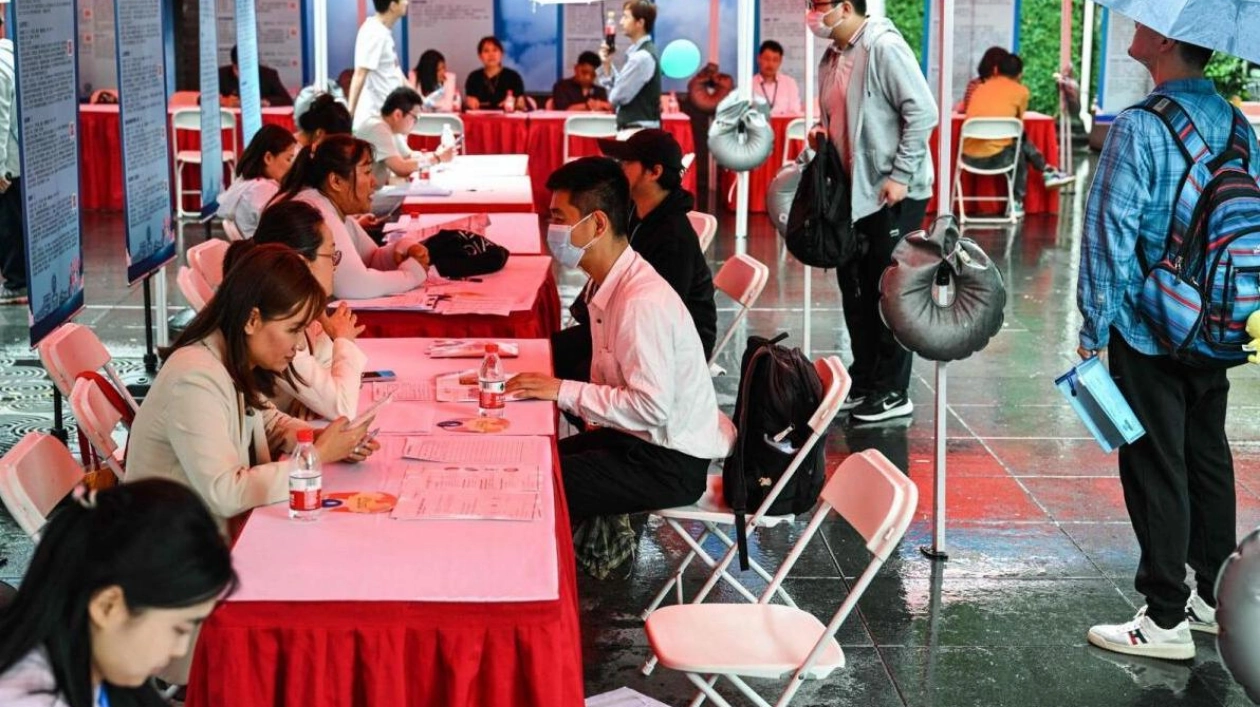Aspiring actor Guo Ting is resolute in her pursuit of success in China's equivalent of Hollywood, despite facing loneliness, rigorous auditions, and an unfamiliar hot and humid climate. The 27-year-old from northern China resigned from her white-collar job in Beijing this year to relocate to subtropical Hengdian, a hub for major movie studios and casting agencies.
Guo is part of a growing trend among young Chinese who are abandoning the conventional dream of a stable, mainstream job in favor of alternative careers and the opportunity for self-fulfillment. Her childhood dream of becoming an actor was initially discouraged by pragmatic adults, but after several years in an office, Guo now prioritizes happiness above all. Chinese media and social media have increasingly highlighted young people who are opting for diverse career paths, including nomadic lifestyles, influencer roles, or artistic pursuits.
Although these individuals remain a minority, the increasing dialogue about their choices mirrors broader transformations in the world's second-largest economy following decades of rapid growth. Miao Jia, a sociology expert from New York University Shanghai, notes that some, especially those from wealthier backgrounds, are redefining success. "When they receive better education and after they have enjoyed the benefits of rapid economic growth, (young people) start to consider what truly brings happiness," she explained.
Guo's career pivot coincides with significant shifts in how young Chinese view work. Concepts like "lying flat" and "letting it rot" have gained traction among those dealing with fierce job competition, while others, concerned about economic downturns and unstable private sectors, are turning to stable government and state-owned enterprise jobs. Youth unemployment hit 14.2 percent in May, reflecting the challenges many face in securing employment.
Miao of NYU Shanghai observes that China's younger generation is becoming increasingly diverse compared to previous generations. While office jobs are typical for urban middle-class youth, they remain a scarce opportunity for many. Ouyang, a 20-year-old middle school graduate from Yiwu, found his small office job running an e-commerce business to be a novel experience after a chaotic stint as a restaurant server in his hometown in Henan province. Eager for better pay, Ouyang recently embraced the role of a livestream seller of inexpensive goods.
In Hengdian, Guo meticulously prepared for an audition, applying a multi-step skincare routine in her shared apartment. She searched her wardrobe for an outfit reminiscent of her corporate attire, ready to portray a fictional office worker. Adjacent to the casting agent's office was a community space managed by an actors' union, where numerous individuals waited for auditions and job interviews.
Guo expressed the pressure of starting out in the industry, where opportunities are not self-determined. Currently, she earns around 2,000 yuan ($275) monthly from the few jobs she secures. The transition from a social office environment to a solitary freelance life was initially challenging, but Guo and her peers are driven by more than just financial gain. Those she knows who have left mainstream jobs in Hengdian feel that adhering to a set routine is devoid of meaning.






